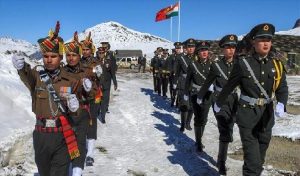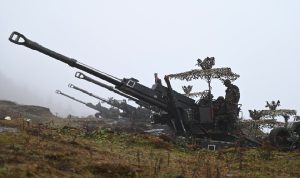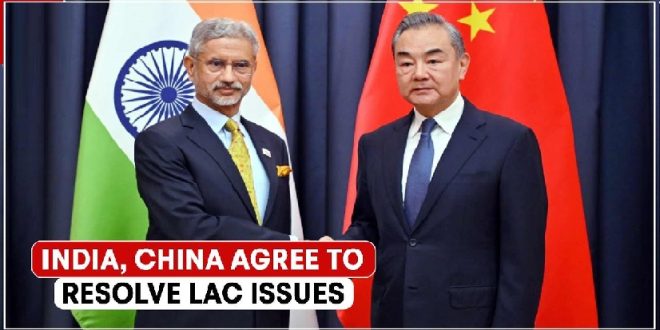05-07-2024
NEW DELHI/ BEIJING: India’s Foreign Minister Subrahmanyam Jaishankar met his Chinese counterpart Wang Yi on Thursday in Kazakhstan where the two agreed to step up talks to resolve issues along their border, New Delhi said in a statement.
 India and China share a long Himalayan border, much of it poorly demarcated, and relations between the two countries have been sour since a military standoff in July 2020 when at least 20 Indian soldiers and four Chinese troops were killed.
India and China share a long Himalayan border, much of it poorly demarcated, and relations between the two countries have been sour since a military standoff in July 2020 when at least 20 Indian soldiers and four Chinese troops were killed.
India said Jaishankar met Wang on the sidelines of the Shanghai Cooperation Organization summit in Astana where they agreed that “prolongation of the current situation in the border areas is not in the interest of either side.”
The two agreed to enhance meetings between their diplomatic and military officials “to resolve the remaining issues at the earliest,” the Indian foreign ministry said in a statement.
China and India should properly handle their differences and ensure relations advance on a stable track, a Chinese foreign ministry statement quoted Wang as saying during the talks.
“We must maintain a positive mindset, properly handle and control the situation in the border areas on the one hand, and actively resume normal exchanges on the other hand,” Wang said.
Indian Prime Minister Narendra Modi, who began his third straight term last month, said in April that the two countries should urgently address the “prolonged situation” on their border.
Both countries have fortified positions and deployed extra troops and equipment along the border since 2020. The nuclear-armed nations have been uneasy neighbors for decades after a bloody border war in 1962.
“He (Jaishankar) reaffirmed the importance of fully abiding by relevant bilateral agreements, protocols, and understandings reached between the two governments in the past,” New Delhi’s statement said.
 The two countries have previously agreed to maintain dialogue through military and diplomatic channels.
The two countries have previously agreed to maintain dialogue through military and diplomatic channels.
Meanwhile, China’s President Xi Jinping and Russia’s Vladimir Putin pressed their case on Thursday for closer security, political and economic cooperation between countries of the vast Eurasian region as a counterweight to Western alliances.
They were speaking on the second and final day of a summit in the Kazakh capital Astana of the Shanghai Cooperation Organization (SCO), a club launched in 2001 by Russia, China and Central Asian states and now including India, Iran and Pakistan. “SCO members should consolidate unity and jointly oppose external interference in the face of the real challenges of interference and division,” Xinhua news agency quoted Xi as saying, warning against the West’s “Cold War mentality”.
President Putin, in his address to the SCO, reiterated Russia’s call for “a new architecture of cooperation, indivisible security and development in Eurasia, designed to replace the outdated Eurocentric and Euro-Atlantic models, which gave unilateral advantages only to certain states”.
He once again blamed the West for the war in Ukraine and said Russia was ready to freeze the conflict if Kyiv and its backers accepted Moscow’s terms for talks.
Putin said last month the proposed new Eurasian security pact should be open to all countries across the region, including current NATO members but the aim, he said, should be to gradually remove all external military presence from Eurasia, a clear reference to the United States.
The SCO nations represent new key buyers of Russian commodities such as oil and gas, as Western sanctions imposed over the Ukraine war have forced Moscow to pivot towards Asia. (Int’l Monitoring Desk)
 Pressmediaofindia
Pressmediaofindia




